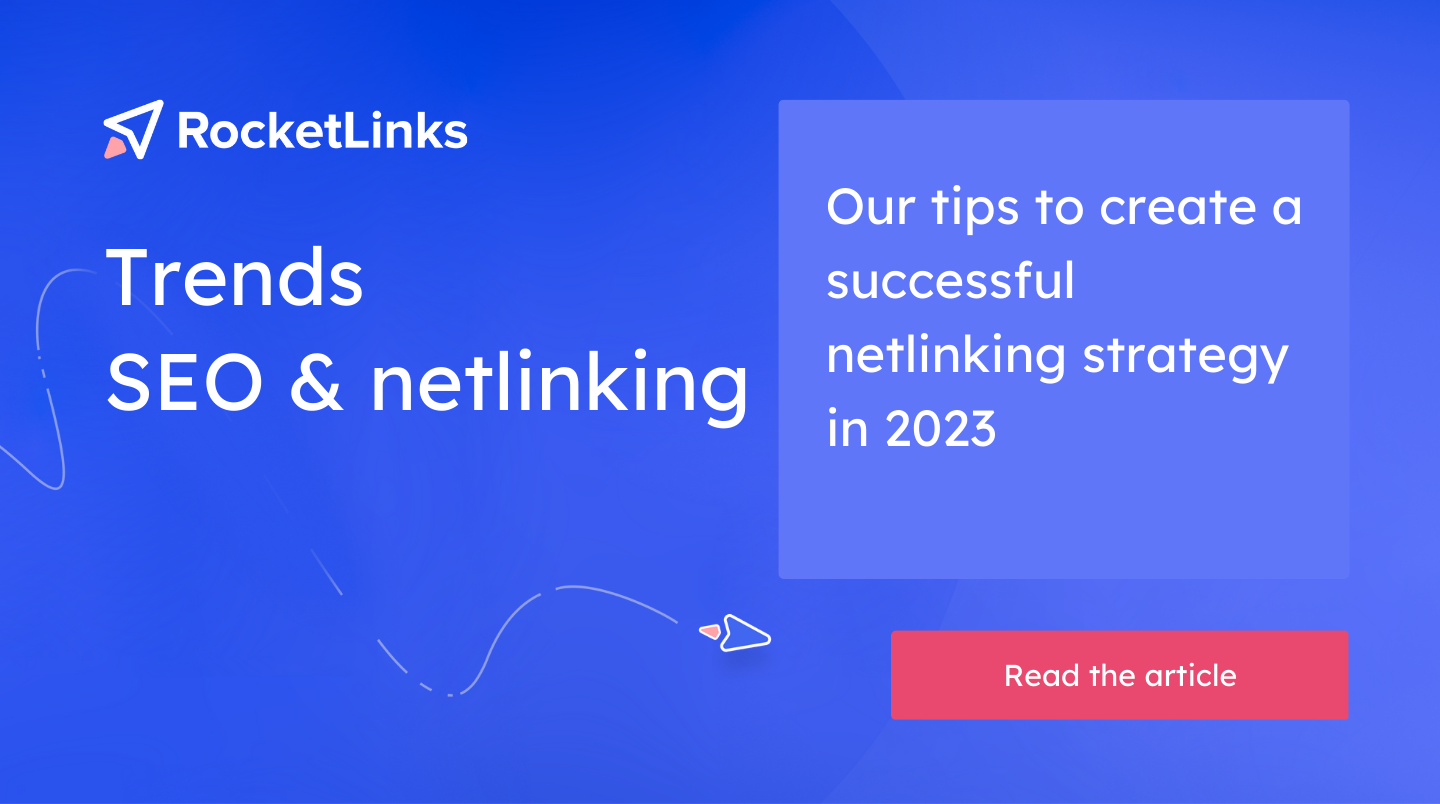In 2023, important evolutions and innovations will shake up the netlinking world, offering new opportunities and challenges for brands.
SEO is an ever-evolving ecosystem. Its rules change as search engines are upgraded and as users' habits transform. With everything changing so quickly, keeping up with the latest trends is crucial. Which innovations will revolutionize your next netlinking campaigns? In what way? What do you need to watch out for to be successful this year?
RocketLinks created a guide summarizing the practices that must be adopted to develop a successful netlinking strategy in 2023!
Find the good balance between quantity and relevance
In SEO, the importance of netlinking has grown significantly during the last few years. Updates such as the Google May 2020 Core Update have strengthened the importance of quality links and content relevance for search engine optimization. More recently, in December 2022, a new version of Link Spam Update - its algorithm for fighting low-quality links - was introduced.
Google is trying more and more to restrict the so-called "black hat" netlinking practices. The intent is to showcase relevant contents and limit fraudulent practices on the web, but also to improve the user experience of the search engine.
For this reason, writing content with many fake links is a strategy to be avoided: you should prefer links on trusted sites with a similar audience rather than numerous spammy links. Therefore, your articles must be informative and your links well contextualized. Choose carefully the media to buy your links.
Exploit the full power of AI
It is impossible to discuss SEO trends without mentioning artificial intelligence (AI). Conversational assistants have been the subject of much debate for several months.
On the one hand, there are brands that are distrustful of the dangers of this technology. On the other hand, there are those who are trying to exploit all the possibilities it offers.
On the SEO side, there are many, starting with copywriting. The AI can be used as a support tool to identify topics to tackle, search for media or automate keyword research.
However, there is a question: can we use AI to generate a complete text? The answer is yes, as long as the final content helps Internet users. Otherwise, Google will not give the intended value to the content and will consider that you are trying to manipulate the search rankings.
That is why you should use this tool sparingly. Instead, you should rely on it to obtain a first draft to revise, or indications to write more quickly. Relying on this technology for your entire on-site or off-site content strategy could be damaging in the long run.
In summary, think of AI as a co-worker that can assist you during the writing process rather than a lever on which you base your entire SEO strategy.
Rely more on data
Data plays a key role in most brand strategies today. Netlinking is no different.
Using data strategically and thoughtfully can help solve two major challenges:
- to better understand the search intents of Internet users to give them the adequate answer and stand out from the competition
- to conduct a deeper analysis of other brands’ strategies in order to make more informed decisions.
To achieve these two key objectives, brands must successfully navigate the vast ocean of data that can be complex to understand and use. It is even more difficult as there is no tool that provides clear answers regarding the number of links to insert or their cost. What's the point of having relevant information if you cannot draw conclusions easily?
Brands need a powerful data visualization tool that helps them understand at a glance the strategic direction they need to take. Advanced and ready-to-use metrics such as the value of organic traffic, referring domains, or Trust Flow must be accessible. This information is essential to obtain a precise vision of the competitors' netlinking strategies and to identify the levers to use.
RocketLinks has simplified this data visualization! Request your benchmark 😀
Take the user intent into account in all your decisions
Brands and search engines are no longer the only components of the SEO equation. The user, and more specifically their search intention, now plays a predominant role in the search.
You have to make sure that each keyword or landing page precisely meets this intention, or your content might not be highlighted on the first page of Google.
As a reminder, the search engine has an algorithm called Multitask Unified Model (MUM). Its goal is to provide more relevant answers to Internet users' complex questions. It is capable of understanding the context, their needs, and their final intention. The purpose is to get answers to their queries faster.
This means that if you don't meet the user intent with valuable articles and adapted formats, your content could be relegated to page two of Google, also known as the abyss. To avoid this scenario, make sure you put users at the heart of your netlinking strategy.
Innovative technologies like artificial intelligence and data are expected to drive the growth of the netlinking market in 2023. It will also undergo profound changes driven by the evolution of search engine algorithms and their new expectations.
For brands, the main challenge will be to adapt to all these evolutions and take advantage of them to reach their objectives - to increase their visibility and boost the return on investment of their netlinking campaigns. Our teams are there to help you throughout the year.
At RocketLinks, experts in SEO and netlinking are there to advise you, and choose with you the best possible strategy. RocketLinks helps you find the best links and media. To learn more about our offers, click here!
